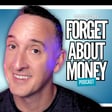
Mahdi Cocci | From Navy to Netflix
🎬 Mahdi Cocci's Inspiring Journey from Navy to Hollywood Stardom 🌟
Join us in this captivating episode of Forget About Money, where Mahdi Cocci, famously known for his roles in Tyler Perry's 'Bruh' and Netflix's 'The Lovebirds', shares his incredible transformation from a naval officer to a successful actor. 🌟
⚓ Chapters
0:00:00 Introduction to Mahdi Cocci's Journey
0:11:20 Naivety and Responsibility
0:22:08 Applying for Navy ROTC Scholarship
0:23:50 Changes in Navy ROTC Programs
0:25:37 Transition from Navy to Acting
0:25:43 Transition from Navy to LA Lifestyle
0:26:51 Breakthrough in Acting Career
0:29:43 Networking in Atlanta
0:35:39 Financial Struggles as a Young Actor
0:38:53 Overcoming Credit Card Debt
0:39:04 Payment Methods and Retirement Planning
0:45:45 Establishing an S-Corp for Tax Purposes
0:46:51 Retirement Account Options for Actors
0:51:07 Upcoming Projects in Acting Career
🎭 Long Summary
Mahdi Cocci, known for his dynamic presence in both Tyler Perry's "Bruh" and Netflix's "The Lovebirds", takes us through his fascinating story on Forget About Money.
From his early days in the Navy aboard the USS Tarawa to his bold leap into the acting world, Mahdi's journey is nothing short of inspiring.
He opens up about the significant transitions in his life, from his initial modeling gigs to prominent roles in shows like The Walking Dead and She-Hulk.
Mahdi also delves into the financial aspects of an actor's life, providing invaluable advice on managing finances, avoiding debt, and planning for a stable future.
His story of resilience, dedication, and wise financial choices is a must-listen for anyone aspiring to make it in the entertainment industry.
🌟 Brief Summary
In this episode of Forget About Money, Mahdi Cocci discusses his transition from a naval officer to a renowned actor.
We explore his journey from modeling to acting, emphasizing the importance of industry knowledge and financial wisdom.
Mahdi shares his experiences and collaborations with industry giants like Tyler Perry and offers crucial insights into managing finances and planning for retirement.
His story is a testament to the power of resilience and smart choices in navigating the complexities of the entertainment industry.
📱 Follow Us Podcast
Socials: @forgetaboutmoney
YouTube Channel: @forgetaboutmoneypodcast
#MahdiCocci, #ForgetAboutMoneyPodcast, #ActorLife, #FromNavyToActing, #HollywoodJourney, #FinancialWisdom, #ActingCareer, #SuccessStories, #TylerPerry, #NetflixOriginals, #ResilienceInActing, #EntertainmentIndustry, #CareerTransformation, #RetirementPlanning, #DebtFreeJourney, #FinancialIndependence, #ActorsLife, #Showbiz, #BehindTheScenes, #LifeLessons, #InspiringStories, #LAActor, #AtlantaActingScene, #SavingsForActors, #TaxTipsForActors, #wealthmanagement
🌟 Watch, listen, and be inspired as Mahdi Cocci unfolds his journey of transformation and success in the entertainment world.
Don't forget to subscribe to our channel @forgetaboutmoneypodcast and follow us on social media @forgetaboutmoney for more inspiring stories! 🌟

